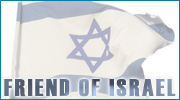Du har det jaMy Ass skrev:Jag har sagt att IMF är en underorganisation till FN
http://www.imf.org/external/about/govaccount.htm
Accountability
The IMF is accountable to its 186 member governments, and is also scrutinized by multiple stakeholders, from political leaders and officials to, the media, civil society, academia, and its own internal watchdog. The IMF, in turn, encourages its own members to be as open as possible about their economic policies to encourage their accountability and transparency.
Engagement with intergovernmental groups
Official groups, such as the Group of Eight (G-
The G-8 finance ministers and central bank governors meet at least twice annually to monitor developments in the world economy and assess economic policies. The Managing Director of the IMF is usually invited to participate in those discussions. The G-8 functions as a forum for discussion of economic and financial issues among the major industrial countries—Canada, France, Germany, Italy, Japan, Russia, the United Kingdom, and the United States.
The G-20 consists of the 20 leading and emerging economies of the world, and includes all G-8 countries plus Argentina, Australia, Brazil, China, India, Indonesia, Korea, Mexico, Saudi Arabia, South Africa, and Turkey, as well as the European Union. The G-20 discusses and coordinates international financial stability and is a key player in shaping the work of the IMF. Its meetings usually take place twice a year at the level of heads of state and government, with several other ministerial-level meetings, including finance ministers and central bank governors, held a few times a year.
Civil society, think tanks, and the media
The IMF's work is scrutinized by the media, the academic community, and civil society organizations (CSOs).
IMF management and senior staff communicate with the media on a daily basis. Additionally, a biweekly press briefing is held at the IMF Headquarters, during which a spokesperson takes live questions from journalists. Journalists who cannot be present are invited to submit their questions via the online media briefing center.
IMF staff at all levels frequently meet with members of the academic community to exchange ideas and receive new input. The IMF also has an active outreach program involving CSOs. An IMF and Civil Society webpage was launched in December 2007.
Internal watchdog
The IMF's work is reviewed on a regular basis by an internal watchdog, the Independent Evaluation Office, established in 2001. The IEO is fully independent from IMF management and operates at arm's length from the Executive Board, although the Board appoints its director.
The IEO's mission is to enhance the learning culture within the IMF, strengthen its external credibility, promote greater understanding of the work of the Fund, and support institutional governance and oversight.
The IEO establishes its own work program, selecting topics for review based on suggestions from stakeholders inside and outside the IMF. Its recommendations strongly influence the Fund's work. It has recently reviewed the IMF's engagement with sub-Saharan Africa, its advice to member countries on exchange rate policy, and its governance.
Ethics office and whistleblower hotline
The IMF also has its own Ethics Office. Established as an independent arm of the Fund in 2000, the Office provides advice and guidance to IMF staff, and undertakes investigations into allegations of unethical behavior and misconduct. An Integrity Hotline—a 24-hour whistleblowing system—was launched in 2008.
Transparency
The IMF also encourages its member countries to be as open as possible about their economic policies. Greater openness encourages public discussion of economic policy, enhances the accountability of policymakers, and facilitates the functioning of financial markets.
To that effect, the IMF's Executive Board has adopted a transparency policy to encourage publication of member countries' policies and data. This policy designates the publication status of most categories of Board documents as "voluntary but presumed." This means that publication requires the member's explicit consent but is expected to take place within 30 days following the Board discussion.
In taking these steps to enhance transparency, the Executive Board has had to consider how to balance the IMF's responsibility to oversee the international monetary system with its role as a confidential advisor to its members. The IMF regularly reviews its transparency policy.
Ser du något om FN ?






